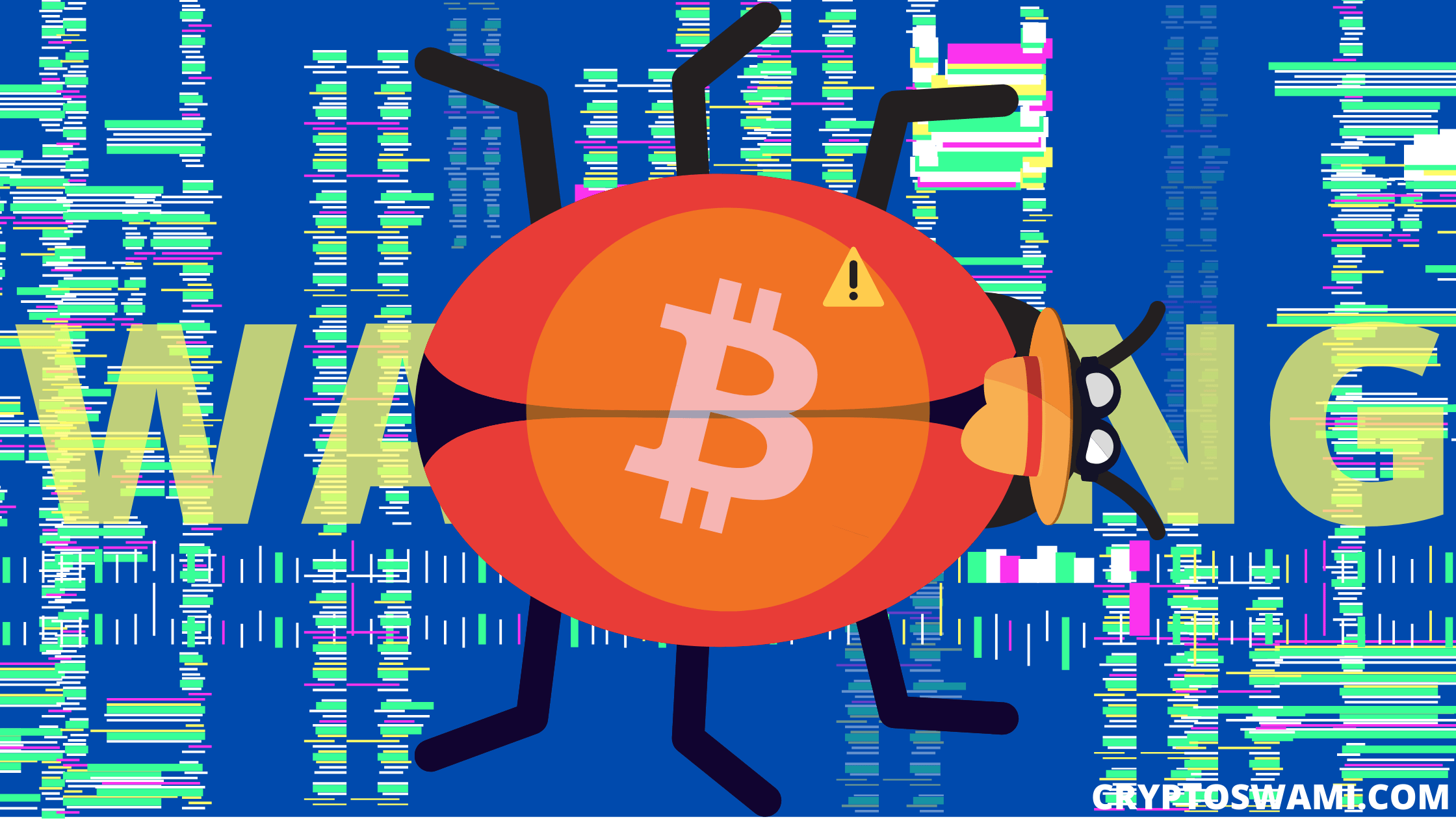Ready to dip your toes into crypto? Wondering if it’s the golden ticket to riches or just a myth? Amidst tales of online success, don’t forget the need for caution against crypto scams. If your answer is ‘yes’, you should also know that you need to protect yourself from scams and frauds.
A lot’s going on in the digital currency world, and with crypto-mania at an all-time high, crypto scams are on the up too. Reports of crypto frauds, Ponzi schemes, and crypto scams have been circulating more than ever before.
Scams might come in many shapes and sizes, from fake ICOs to phishing attacks. But there are many ways of protecting yourself from fraud and theft, so it’s important that we’re all aware of the common types of scams in today’s cryptoculture.
So here is the name of common crypto scams, or, you can say, types of crypto scams you avoid landing on.
Crypto scams of ICOs.
One of the most popular ways to get into the cryptocurrency market these days is through initial coin offerings (ICOs). Through ICOs, companies can sell their own tokens to fund further development.
However, this popularity has made them the target of many scammers. Fake ICOs are another avenue for scammers to get away with other people’s money under the guise of a legitimate cryptocurrency.
How to prevent ICO scams.
Do your research. If you don’t want to lose money, though, it’s important that you do your own due diligence before putting money into an ICO. Study the company’s white paper. The company’s white paper should explain it in detail. Look for the team and their partners on various social media sites.
Pump-and-Dump Scams.
The pump-and-dump is a classic piece of crypto-market manipulation. The scheme’s creators intend to defraud innocent investors by encouraging them to purchase an asset based on misinformation. When those investors buy in, the pumper sells, effectively lowering the price. As a result, the scammer makes a lot of money while everyone else loses.
The cryptocurrency market is more susceptible to pump-and-dump scams than the stock market because of its lack of regulation. Stock exchange regulators have taken steps over the years to prevent pump-and-dumps from happening in traditional markets, but no such safeguards exist in crypto markets.
This type of fraud has become more common with cryptocurrencies, where pump-and-dump scams are often arranged through groups on social media platforms like Telegram or Discord.
The good news is that pump-and-dumps can be prevented, as long as you’re aware of how they work and know what to look out for.
Defi Rug pulls.
In the cryptocurrency industry, a rug pull is a malicious maneuver where crypto developers abandon a project and run away with investors’ funds. For example, suppose that a developer creates a new cryptocurrency called Trollcoin (TROLL) and releases it on an initial coin offering (ICO) to small investors.
Developers can easily raise money for their projects this way. People looking to invest in the next big thing drop some money on the ICO and hope that the value of their coins will rise in the future. If they believe in the project, they could even buy more coins after the ICO at a higher price on crypto exchanges.
But what if the developer had no intention of making his project successful? What if he just wanted to steal people’s money? He could simply disappear one day, taking all his investors’ money with him. This is called a rug pull. In traditional finance, this would be considered fraud.
The crypto space, especially DeFi, has been severely affected by rug pulls. Generally speaking, there’s nothing that can be done to prevent rug pulls except for not investing in projects that seem too good to be true.
Ponzi schemes.
This is one reason why it’s important to do your research before investing in anything in crypto.
A Ponzi scheme is a fraudulent investing scam that promises high rates of return with little risk to investors. The Ponzi scheme generates returns for older investors by acquiring new investors.
A Ponzi scheme is a fraudulent investment operation where the operator, an individual or organization, pays returns to its investors from new capital paid to the operator by new investors rather than from profit earned through legitimate sources. Operators of Ponzi schemes usually entice new investors by offering higher returns than other investments, in the form of short-term returns that are either abnormally high or unusually consistent.
The best way to protect yourself from a Ponzi scheme is to question promises that sound too good to be true. You should also be wary of investments that don’t offer any paperwork or legal documentation.
Mining Scams.
Crypto mining scams are common in the crypto community, especially in cloud mining, where it’s much easier to lose money than to make it. Scammers know this and take advantage of naïve investors.
They take the form of a platform that claims to offer “cheap” or “free” hash rate power to mine cryptocurrencies, usually Bitcoin. Buyers and investors will be marketed via platforms in order to assure a continual stream of mining power and compensation. These platforms do not possess the hash rate they claim, and they will not pay out the incentives.
One way you can spot if a platform is fake is if they do not have a real-world address or if they are based in countries that are known for holding cryptocurrency scams. Another warning sign is if they have unrealistic payout targets or claims about how much you will earn with their service.
Crypto phishing.
Imagine being someone who is not very tech-savvy and being told by someone who sounds like a law enforcement officer or government agent that you’re under investigation.
It is a newer, nastier kind of scam that has nothing to do with picking up the phone. It doesn’t involve telemarketers, robocalls, or scammers trying to sell you something.
Instead of a phone call, these attacks happen via text message or email, and they’re more insidious than anything you’ve seen before. They’re called crypto phishing scams and are designed to trick you into giving away information that will let them steal your digital currency holdings.
There are a few things that make crypto phishing particularly devious. First of all, it’s incredibly sophisticated. It takes a lot of time and effort for attackers to first conduct reconnaissance on their targets—finding out what kind of accounts they have and what cryptocurrency types they use—and then develop convincing scripts that span hours.
Crypto dusting attack.
A dusting attack is an attack on a cryptocurrency wallet that sends tiny amounts of cryptocurrency to that wallet, usually with the goal of de-anonymization or obstructing receiving legitimate payments.
Dusting attacks are a recurring problem for privacy-centric cryptocurrencies like Bitcoin, Dash, and Monero because they have a public ledger and a large number of users. The sender can use the public ledger to track which addresses belong to the same person by grouping together addresses that receive the same transaction.
Dusting attacks are also referred to as de-anonymization attacks because they can be used to reveal the real-world identity of people who hold cryptocurrencies that claim to be anonymous.
How dusting attacks work?
The term “dusting” refers to the fact that the attacker sends a small amount of Bitcoin (or other cryptocurrencies) to your wallet address in an attempt to “dust” up your transaction history, reveal information about you, and possibly defraud you.
The purpose of these dusting attacks depends on who’s making them. A random attacker might be trying to reveal your identity so they can blackmail you or steal from you. Other attackers are likely working for law enforcement agencies, which want to use the data for criminal investigations or intelligence gathering.
NFTs scam.
This is a new scam on the market. The nonfungible token (NFT) market was booming earlier this year, with some digital artworks selling for millions of dollars.
There’s still interest and money to be made from NFTs, but the market is a little more nuanced now, and there are plenty of people trying to scam honest NFT buyers. These tricksters pretend to be legitimate NFT sellers and use fake contracts to get victims to pay them money in advance.
A scammer easily manipulates the real value of NFTs. For example, a scammer mints an NFT with a $10,000 price, buys back a self-minted NFT with another account, and again mints the same NFT with a fake discount and also increases the price. They do this many times, and people think they are getting valuable NFT at a low price, but it’s not.
Social media crypto scams.
It is also called Crypto Giveaway Scams. Twitter is one of the biggest platforms for crypto giveaway scams. Scammers can easily create a fake account and post tweets posing as a well-known influencer or company. The scammer may also use a hacked or impersonated social media account to post tweets from the user’s profile.
Scammers often target new or inexperienced cryptocurrency investors because they are less likely to be aware of the various schemes circulating on social media platforms. The scamming operations that don’t target individual investors usually go after big-name accounts with large followings or those with a lot of influence in the cryptocurrency community.
This scam is deceptively simple. Cryptocurrency scammers use social media to pose as credible figures in the space, such as Elon Musk or Vitalik Buterin. They’ll then post messages telling people that if they send cryptocurrency to a specific address, they will receive two or three times the number of coins back.
The reason this scam is so successful is that it tricks people into believing that they will receive something valuable for free. The reality is that once you send your coins to an address, they are gone forever.
Hacking and theft.
A common scam among hackers is to obtain someone’s private key or password and gain access to their crypto wallet. The hacker then empties the victim’s wallet’s funds by transferring them to an account they control. It can’t happen until you give access to the scammer.
For example, a hacker may send an email that appears to be from the wallet or exchange requesting their login credentials, or from a social media platform requesting their personal information. Once the information is obtained, the hacker has access to the user’s accounts and can make withdrawals.
The best defense against these types of hacks is vigilance on behalf of the users. It is essential for users not to share their private keys with anyone or provide them in response to any emails or text messages received. It is also important for users not to click on links or download attachments from unknown sources.
Love/Romance Scams.
Romance is in the air, but it can also be a breeding ground for scammers who utilize dating websites. Scammers emotionally force users to think they are in a real relationship, and after some days, conversation slowly moves to money-making cryptocurrency.
The report says the most common targets are women over 40 who are divorced, widowed, or disabled. But men can be targeted too. So if you’re looking for love online, you have to be careful.
To avoid being scammed, the FBI says you should never wire money or send cash to anyone you haven’t met in person and never give out your credit card number, bank account number, or other personal information. Do research about any potential date before becoming involved by checking out their social media profiles, running a reverse image search on photos, and talking to friends about them.”
Crypto jacking.
Malicious attackers have found a way around this by secretly installing software on hacked computers or mobile devices that lets them mine for cryptos while their victims pay the bills. This type of attack is called crypto-jacking, and it has become a major problem online.
For example, you might be surfing the web when your device suddenly slows to a crawl. You take a look at the activity monitor and see something called ‘Java’ using up 100% of your processor power. This would be a sign that your device has been hijacked as part of a cryptojacking scheme. Device temperature and data use increase unexpectedly. It won’t affect your cryptos, but it will definitely affect your bill. It is a scam cum cyber security.
Last word.
As you can see, there are many crypto scams to steal cryptocurrencies. Whether scammers decide to rob your digital wallet on an exchange or they break into your computer and steal it that way, they’re coming after your money.
At the end of the day, the best way to protect yourself is to be aware. While you can’t avoid mistakes entirely, a little bit of awareness is a great way to protect yourself from being scammed out of money that you worked hard for.







